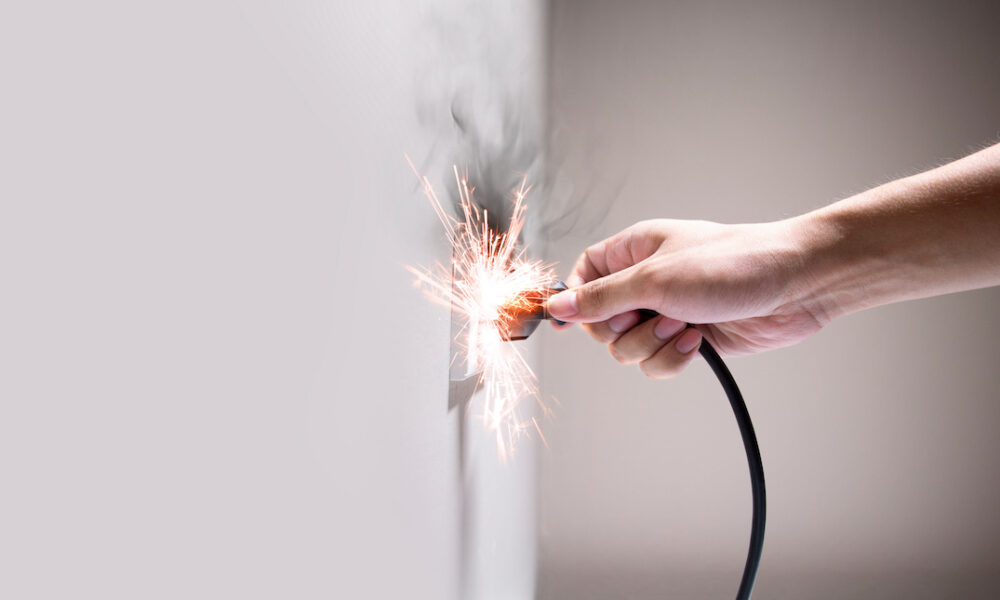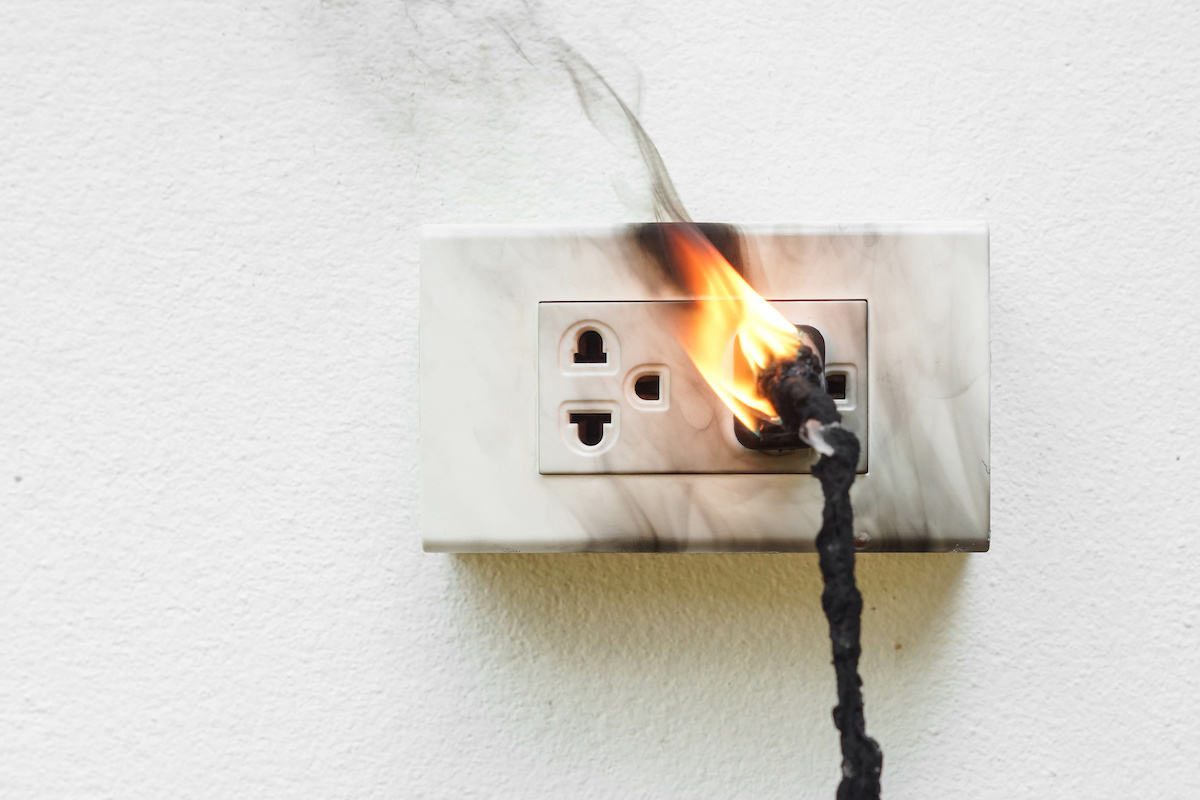
Did you know there are roughly 400 electrocutions and 500 electrical fire-related deaths each year in the United States? Electrical safety is crucial to prevent injuries and fatalities caused by electricity. Many of these incidents occur due to negligence and a lack of knowledge about electrical safety. Therefore, it is important to educate yourself and your family about electrical hazards and ways to prevent them. Following electrical safety tips, such as not overloading outlets, keeping electrical cords away from water, and regularly checking electrical appliances, can help keep you and your family safe.
Regular inspections, proper usage, and maintenance of electrical devices and appliances can go a long way in ensuring your safety and preventing electrical accidents. Electrical safety is critical in the home to prevent electrical shocks, fires, and other accidents. In this blog, we’ll discuss common electrical hazards, safety tips, and maintenance advice.
What are Some Common Electrical Hazards in the Home?
Common electrical hazards in the home include electrical shocks, electrocution, and electrical fires. These can be caused by faulty wiring, damaged electrical appliances, and improper use of electrical outlets and cords. It’s important to follow proper electrical safety protocols, such as not overloading outlets, to prevent these hazards from occurring.
Some other electrical injuries homeowners experience include:
- Contact with live wires: touching exposed wires or appliances with damaged cords can cause electrical shocks and burns.
- Misuse of electrical appliances: using electrical appliances for unintended purposes or without following manufacturer instructions can cause electrical hazards.
- Overloaded circuits: plugging too many devices into a single circuit can overload the system and cause electrical fires.
- DIY electrical work: attempting to perform electrical work without proper training and knowledge can lead to accidents.
- Water and electricity: using electrical appliances near water sources or with wet hands can lead to electrocution.
- Lightning strikes: during thunderstorms, lightning strikes can cause electrical surges that can damage electrical devices and cause electrical hazards.
- Old wiring: outdated wiring systems can deteriorate over time and increase the risk of electrical accidents.
Electrical Safety Tips for Every Homeowner
Prevention is the best course of action for electrical safety in the home. This is because electrical hazards can cause serious injuries or even death. By following proper electrical safety protocols, you can reduce the risk of accidents and ensure that your home remains a safe environment for you and your family.
Keep Electrical Cords Away from Water Sources
Keeping electrical cords and appliances away from water sources is important to prevent electrical shock and electrocution. Water is a good conductor of electricity, and contact with even a small amount of water can cause a severe electric shock. Always make sure that your hands are dry before touching electrical appliances, and never use electrical appliances near water sources.
Avoiding Overloading Outlets and Circuits
Electrical safety is important, and one way to ensure safety is by avoiding overloading outlets and circuits. Overloading can lead to overheating, which can cause electrical fires and damage to your electrical system. Always use the appropriate number of outlets and circuits, and avoid using extension cords as a permanent solution.
Installing Ground Fault Circuit Interrupters (GFCIs)
Installing Ground Fault Circuit Interrupters (GFCIs) in bathrooms, kitchens, and other wet areas is crucial for electrical safety. GFCIs can detect electrical leakage and shut off the power to the circuit immediately, preventing electrical shocks and electrocution. Hire a licensed electrician install GFCIs in these areas to ensure proper installation and protection.
Use Surge Protectors
Electrical safety is important, and one way to ensure safety is by using surge protectors to protect valuable electronics. Surge protectors can prevent power surges and fluctuations from damaging your electronics, which can save you money and prevent potential electrical fires. Use a high-quality surge protectors and replace them if they show signs of wear or damage.
Get Rid of Knob and Tube Wiring
Knob and tube wiring is an outdated electrical system that can pose serious safety hazards. This type of wiring does not have a ground wire and uses insulation that can degrade over time, leading to potential electrical fires and electrical shock. It is important to replace knob and tube wiring with modern electrical systems to ensure the safety of your home and family.
Upgrade Your Electrical Panel
When upgrading your electrical panel, it is important to prioritize electrical safety. Ensure that the power is turned off before starting any work and never touch live wires. Hire a licensed and experienced electrician to perform the upgrade to minimize the risk of electrical accidents.

Electrical Safety Maintenance Tips
When you are thinking about electrical safety tips, you don’t want to forget about maintenance. Residential home maintenance is important because it helps to prevent costly repairs and ensures the safety and comfort of the homeowners. Neglecting maintenance tasks can lead to major issues such as water damage, pest infestations, and electrical hazards.
Consider some of the following safety tips for maintenance:
- Regularly inspecting electrical cords and appliances for damage
- Replacing damaged cords and appliances
- Having a qualified electrician perform regular maintenance on the home’s electrical system
- Testing and replacing smoke detectors and carbon monoxide detectors regularly
- Regularly inspect electrical cords, outlets, and appliances for signs of damage or wear and tear.
- Routinely inspect electrical cords, outlets, and appliances for signs of damage or wear and tear.
- Do not overload electrical outlets or circuits by plugging too many devices into a single outlet.
- Use extension cords only when necessary and ensure they are rated for the intended use.
- Keep electrical appliances away from water sources and avoid using them with wet hands.
- Use ground fault circuit interrupters (GFCIs) in areas where water is present, such as bathrooms and kitchens.
- Hire a licensed and experienced electrician for any electrical upgrades or repairs.
- Install smoke detectors and carbon monoxide detectors in your home to detect potential electrical fires.
- Never touch electrical appliances or outlets with wet hands or while standing on wet surfaces.
- Keep flammable materials away from electrical appliances and outlets to prevent electrical fires.
- Teach children about electrical safety and keep electrical appliances out of reach.
Emergency Preparedness
Emergency preparedness for electrical hazards in the home should include the following steps: Firstly, ensure that you have working smoke detectors and carbon monoxide detectors installed throughout your home. Secondly, identify the location of your electrical panel and make sure that it is easily accessible in case of an emergency. Thirdly, have a qualified electrician inspect your home’s electrical system to identify any potential hazards and make necessary repairs.
Keep these additional tips in mind for home electrical emergency preparedness
- Know how to shut off power to the home in case of an emergency.
- Have a fire extinguisher accessible in case of electrical fires.
- Develop and practice an emergency escape plan with family members.
- Avoid touching electrical devices or cords during a power outage.
Get More Electrical Safety Tips from Dadz Electrical
At Dadz Electric, we understand the importance of electrical safety in the home. That’s why we’re here to help you with any concerns you may have about your electrical system. Whether you’re experiencing flickering lights, faulty outlets, or any other issues, our team of licensed and experienced electricians are ready to assist you.
Don’t wait until it’s too late. Contact us today to schedule an appointment and ensure the safety of your home and family. We look forward to hearing from you soon.